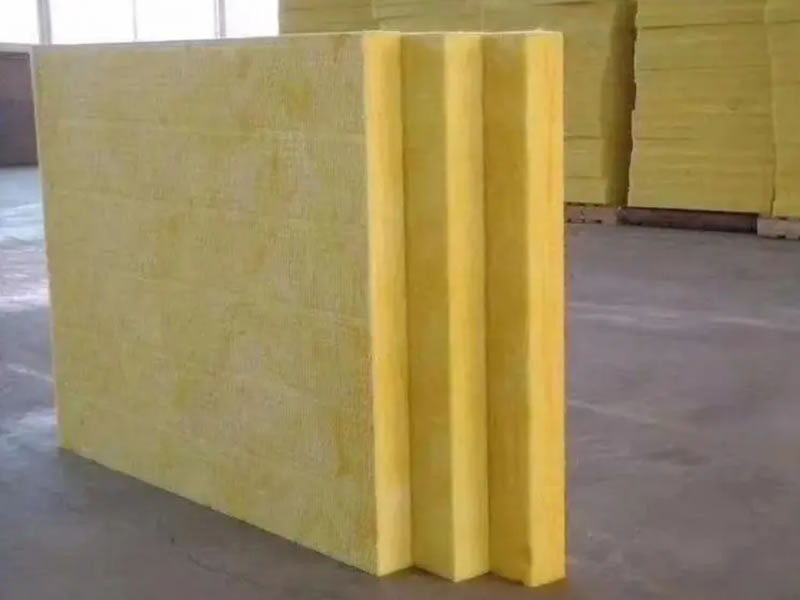Glasswool, also known as fiberglass insulation, is a widely used insulating material made from fibers of glass that are woven into a wool-like texture. It is designed primarily for thermal and acoustic insulation and is known for its high performance in reducing heat transfer and sound absorption.
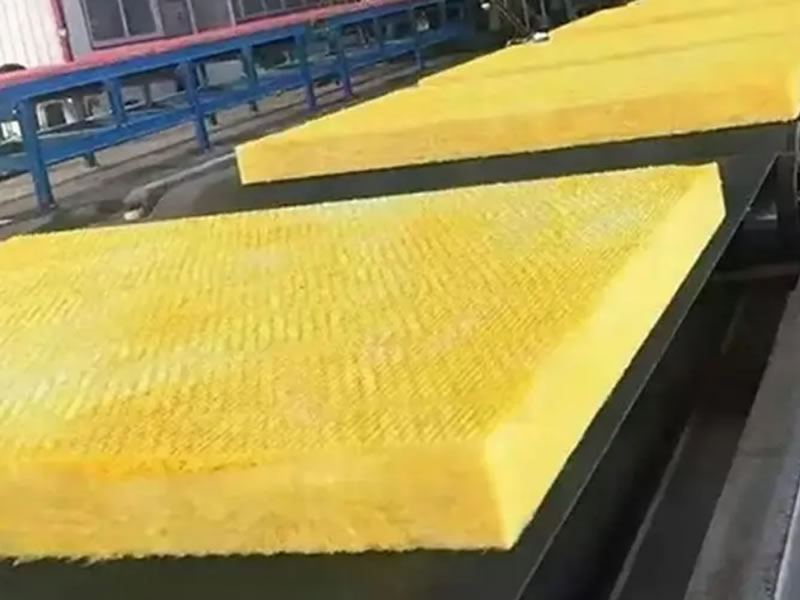

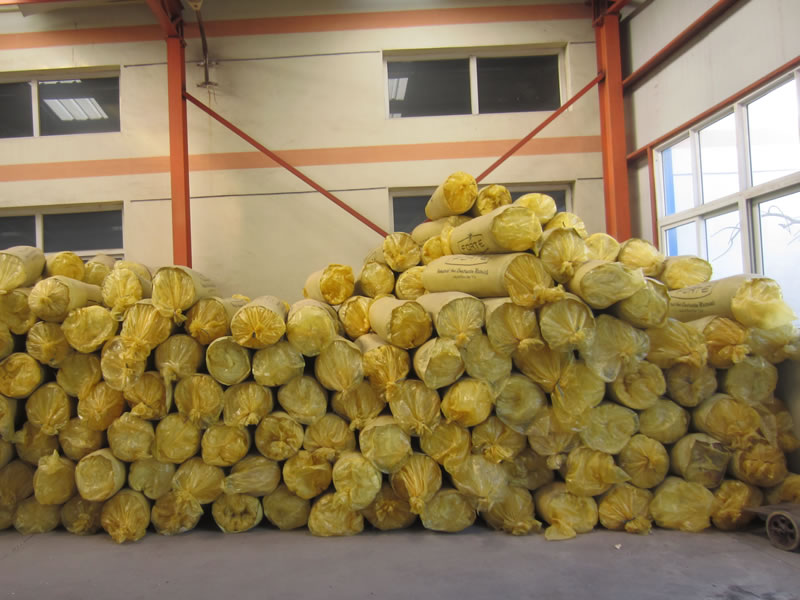
Features:
- Composition: Glasswool is made by melting glass at high temperatures and spinning it into fine fibers, which are then bound together into a flexible, lightweight mat or blanket.
- Thermal Insulation: It has excellent thermal insulation properties due to the tiny air pockets formed within the fibrous structure, which reduce the flow of heat. It is commonly used to insulate roofs, walls, and floors.
- Acoustic Insulation: The fibrous nature of glasswool also makes it an effective sound absorber, making it ideal for use in soundproofing applications, such as in office partitions, theaters, and recording studios.
- Fire Resistance: Glasswool is non-combustible and has high fire resistance, making it a safe choice for insulating buildings and protecting against fire hazards.
- Lightweight and Flexible: The material is easy to install, as it is lightweight, flexible, and can be cut into various sizes and shapes to fit different applications.
Common Forms:
- Blankets or Rolls: These are commonly used for thermal insulation in walls, roofs, and attics.
- Batts: Pre-cut sections used for easier installation in wall cavities or between roof rafters.
- Loose-fill: Used for blown-in insulation in attics or hard-to-reach spaces.
- Rigid Boards: Used where higher compressive strength is needed, such as in industrial applications.
Advantages:
- High Thermal Efficiency: Glasswool has a low thermal conductivity, helping reduce energy consumption for heating and cooling.
- Noise Reduction: Its sound-absorbing properties make it ideal for environments where noise control is important.
- Fire Safety: Being non-combustible, it enhances fire protection in buildings.
- Resistant to Moisture: While it doesn’t absorb water, glasswool is designed to resist moisture buildup, preventing mold or mildew growth.
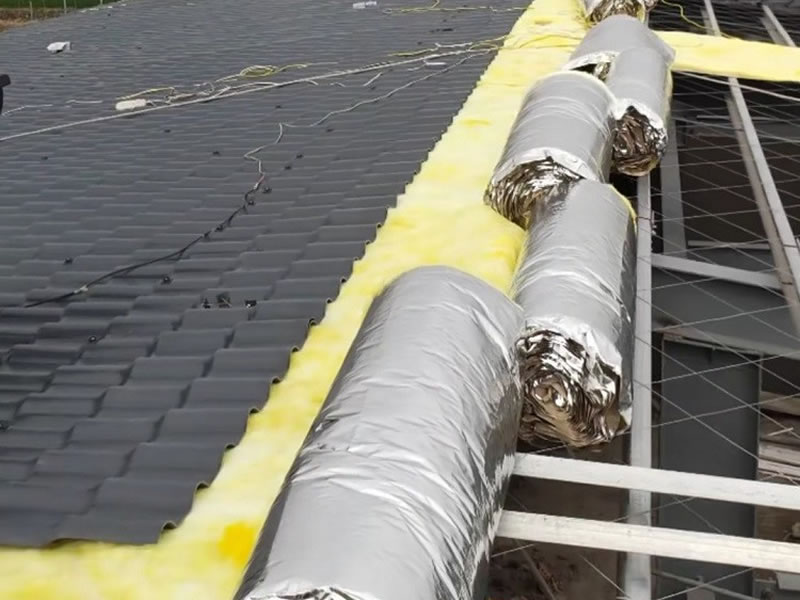

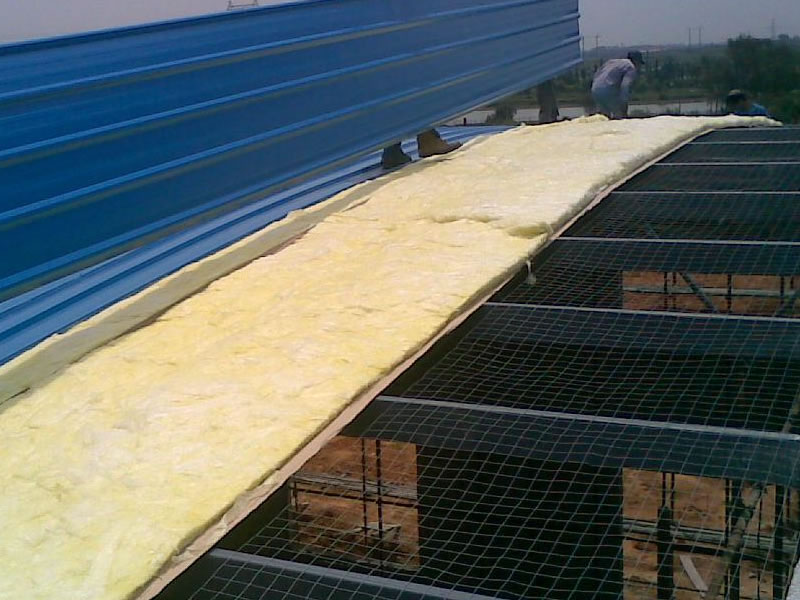
Applications:
- Building Insulation: Used in walls, roofs, and ceilings to maintain temperature and sound control.
- Industrial Insulation: In factories and industrial plants for insulating pipes, tanks, and machinery.
- Soundproofing: Glasswool is used in soundproof panels and ceilings in auditoriums, studios, and offices.
- HVAC Systems: Insulating ductwork and HVAC systems to improve energy efficiency.
Health and Safety:
- Handling Precautions: When handling glasswool, it’s important to use protective gear such as gloves, goggles, and masks, as the fine fibers can cause skin irritation and may be harmful if inhaled.
Glasswool is a popular and efficient insulation material due to its balance of performance, cost, and ease of installation, making it a key component in both residential and industrial insulation systems.

